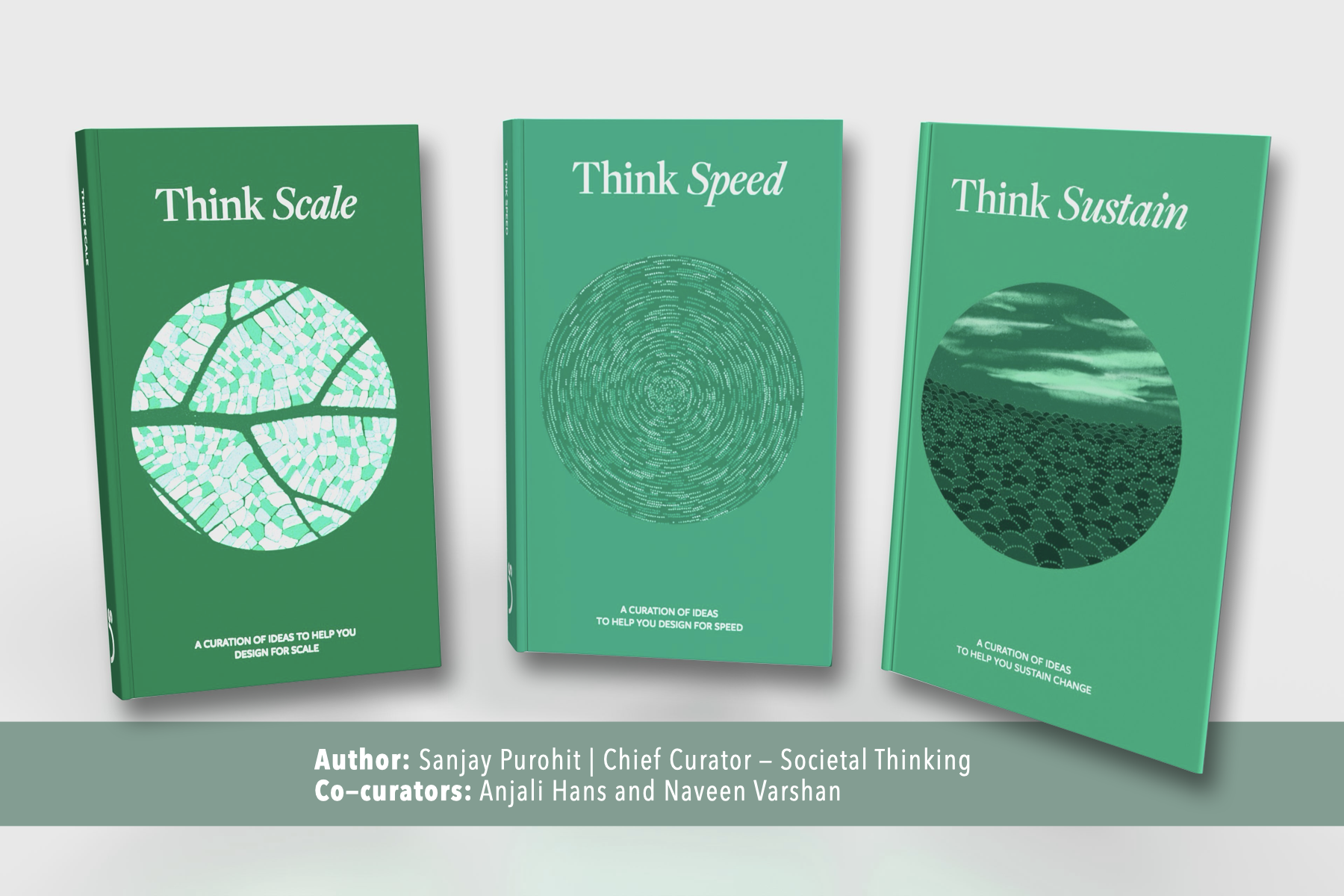We are living in a moment of transition, where problems, as well as technology, are leapfrogging at a never-seen-before pace. Like other transition moments in history, this is a moment to pause, reflect and reimagine how we approach the new era. If we want to counter rapidly growing and mutating problems, speed is our best friend – speed of execution, speed of building solutions, speed of getting solutions to citizens and speed of responding to challenges as they emerge all influence the speed of solving the problem. And to do so, we need to move from a linear change mindset to an exponential change pathway.
As humans, we are inherently biased towards linear change – it is easier to see, to grasp, to enact and it has served us well all these years. A famous French riddle explains exponential well. A lily pond starts with a single lily leaf, each day the number of leaves doubles; two leaves on the second day; four leaves on the third day; eight leaves on the fourth day; on the 29th day it is half full and on the 30th day the pond is full and other flora and fauna are struggling to survive. If someone wants to save the lake, they have to be able to see exponential change early and plan for it.
At Societal Thinking, we think of exponential change as change that leads to more and rapid changes. It does not happen magically, it needs to be planned. Let me give you the example of Aadhaar, India’s identity project. When Aadhaar was conceptualised in 2009, it was estimated that roughly 400 million people in India did not have an individual identity document, while only 17% of India’s population had bank accounts. What India needed was a safe, secure, reliable way to give a unique identity to its 1.2 billion+ population, some of whom had no documents to prove who they were. As a digital identity system, Aadhaar allows governments, civil society, and businesses to trust that the person they are transacting with is truly who they claim to be. A small change that drastically reduced the cost of identity trust from USD 10-20 per transaction to USD 0.27.8 also triggered many changes.
Aadhaar gave millions of Indians direct access to government subsidies (rations, social pensions, cooking gas, fertilisers, etc) without having to rely on middlemen, the ability to access affordable formal financial services (like bank accounts) for the first time, and a way to prove their existence to access civil liberties and Constitutional rights (such as voting, education, jobs) for the first time. This unlocked large economic value in India (between 3-13% of GDP), helped the government save USD 10 billion every year and made India one of the leaders in digital payments (In 2022, India’s digital payment transactions were more than the US, UK, Germany, France combined) – all in less than a decade. A small change that triggered many and rapid changes.
Societal Thinking offers change leaders a framework to navigate exponential change.
How to see it: Exponential change can often be deceptive in its early stages, appearing similar to linear growth. However, as the rate of change accelerates, it leads to a swift and significant impact.
How can one identify the exponential behaviour of the problem and then design for exponential change in solutions?
How to tame it: What infrastructure can support such a transformation at the very beginning and also at scale? Who should build it, who should support it, and how should it be governed so that it is advantageous for everyone? How can one foster an environment that turbocharges the creation of a large diversity of solutions?
How to sustain it: How can such a change sustain? How can many diverse actors come together to solve problems – not just from civil society, but the State, markets and communities too? How can network effects be induced, such that each new actor could solve problems in their own way and in doing so, increase the value of the network for all other actors?
Consider a scenario where a country faces exponential growth in unemployment rates. Traditional approaches might involve offering short-term financial aid or job training programmes. However, at Societal Thinking, we would encourage change leaders to imagine the problem at scale, think about enabling infrastructure that would make solving at scale possible, engage diverse stakeholders who could co-create solutions with speed and leverage networks that could help take the solutions to every community and sustain the change.
Societal Thinking is a systemic approach, a set of values and design principles to reimagine and induce exponential social change by redesigning core interactions between key actors of the society. The Thinking can be used to redesign current programmes so that the same efforts can create exponential change or it can be used to embark on an audacious endeavour of building a Societal Platform that induces impact@population scale.
Be it revolutionising education, healthcare or employment, embracing exponential change through Societal Thinking can equip change leaders to create a positive impact@scale, towards a better future for all.
Learn about Societal Thinking from our Udemy course here.
 Back
Back


